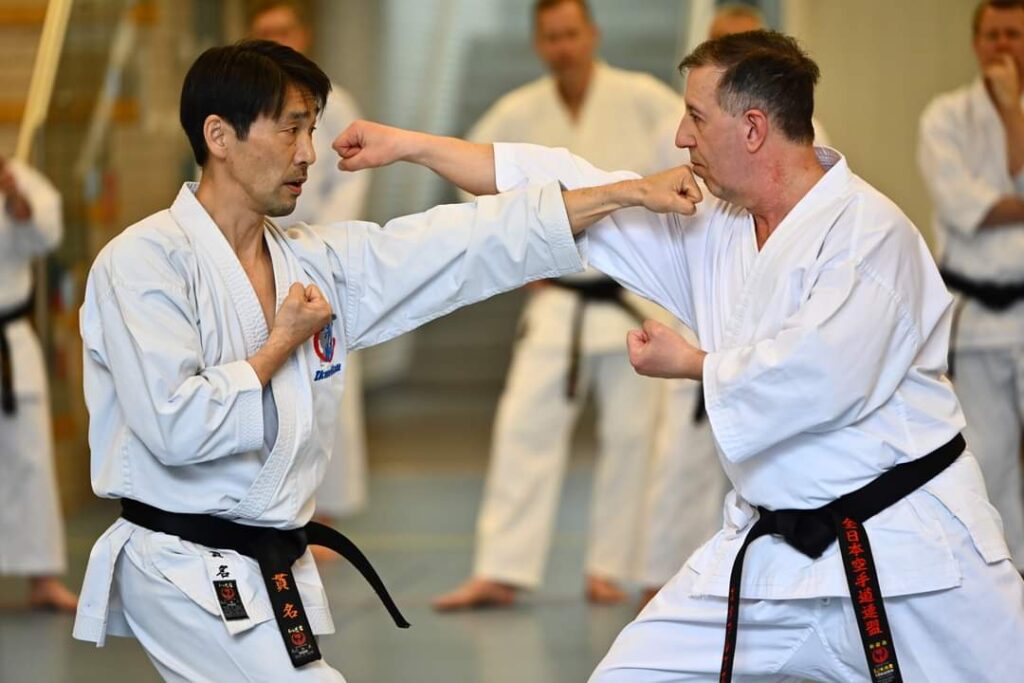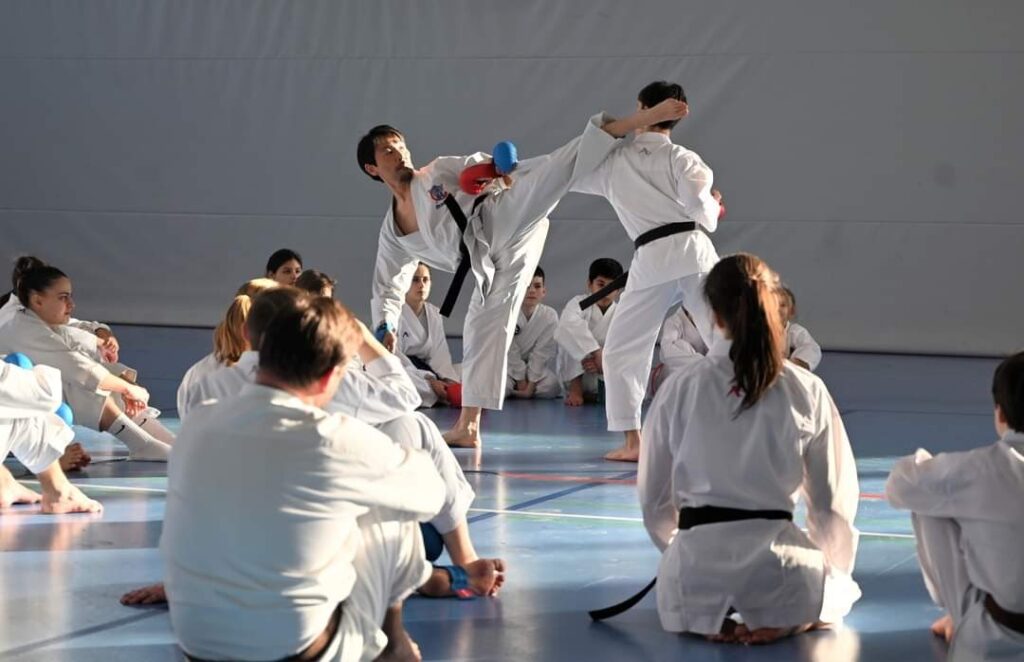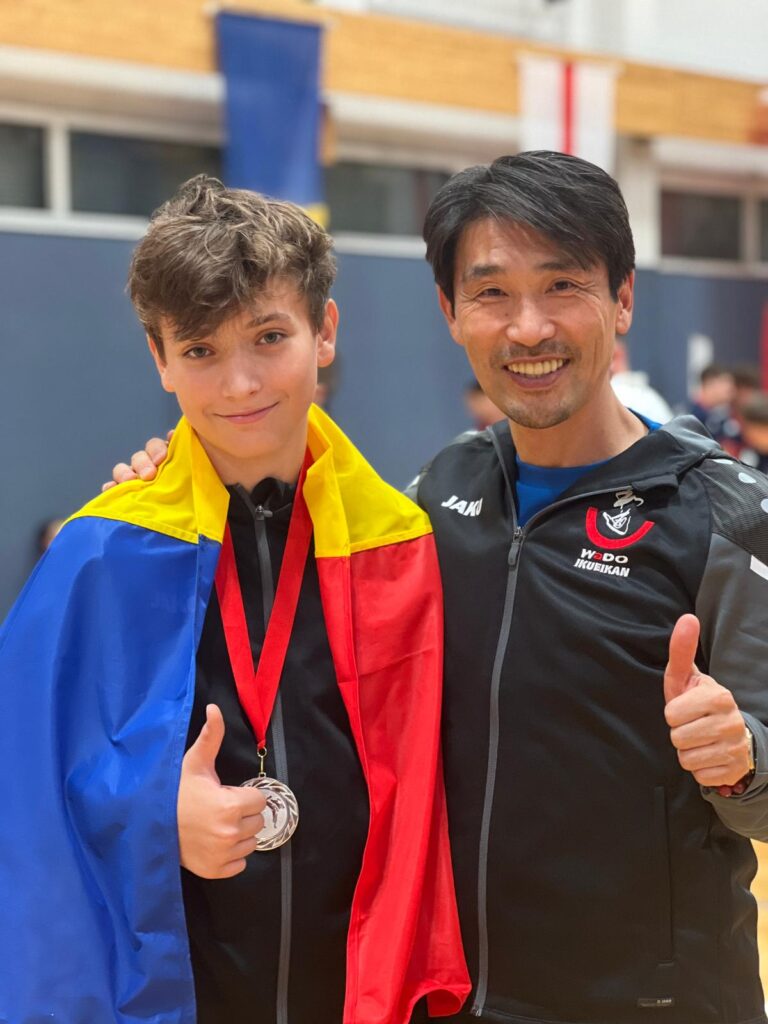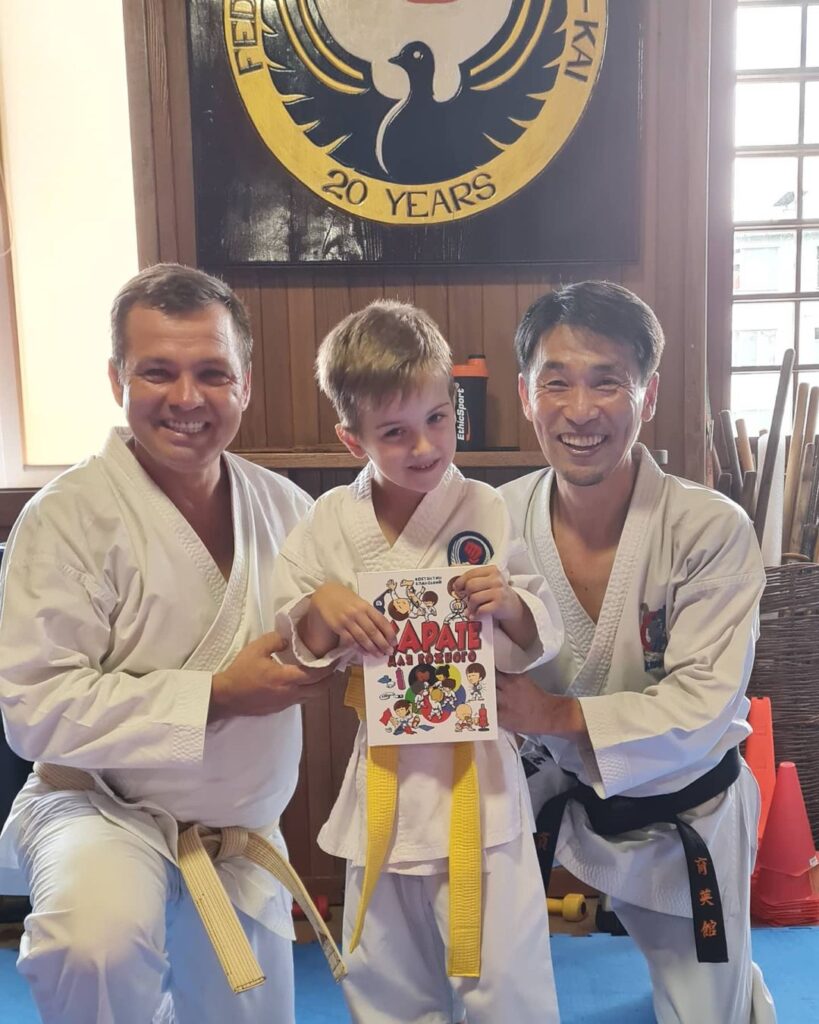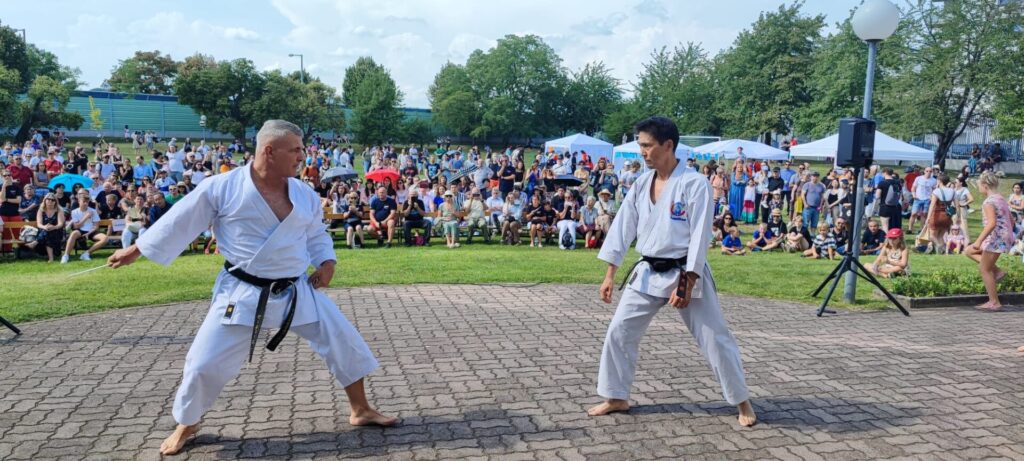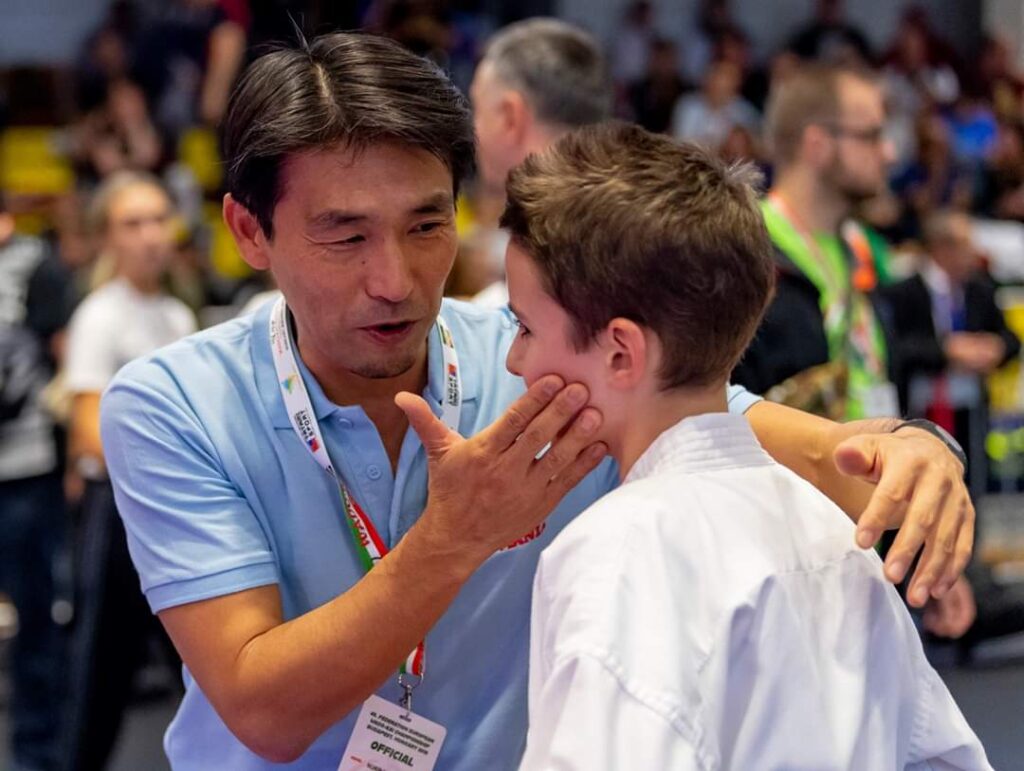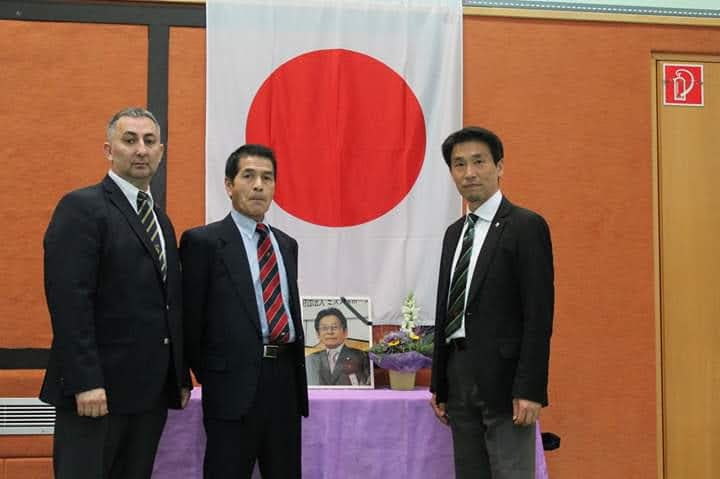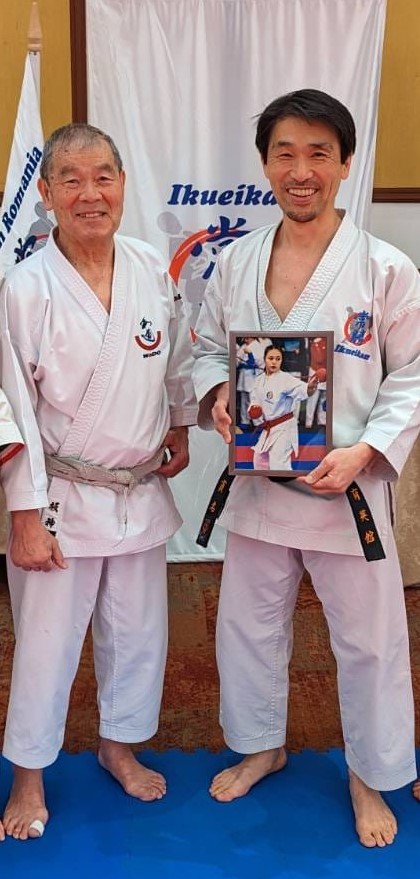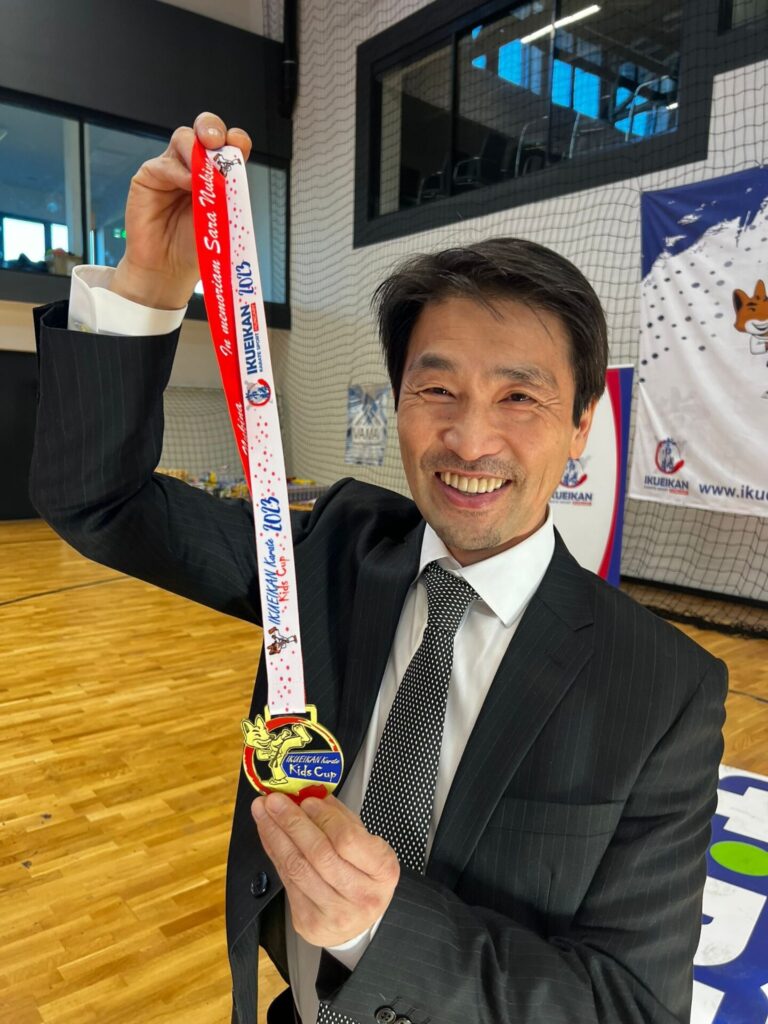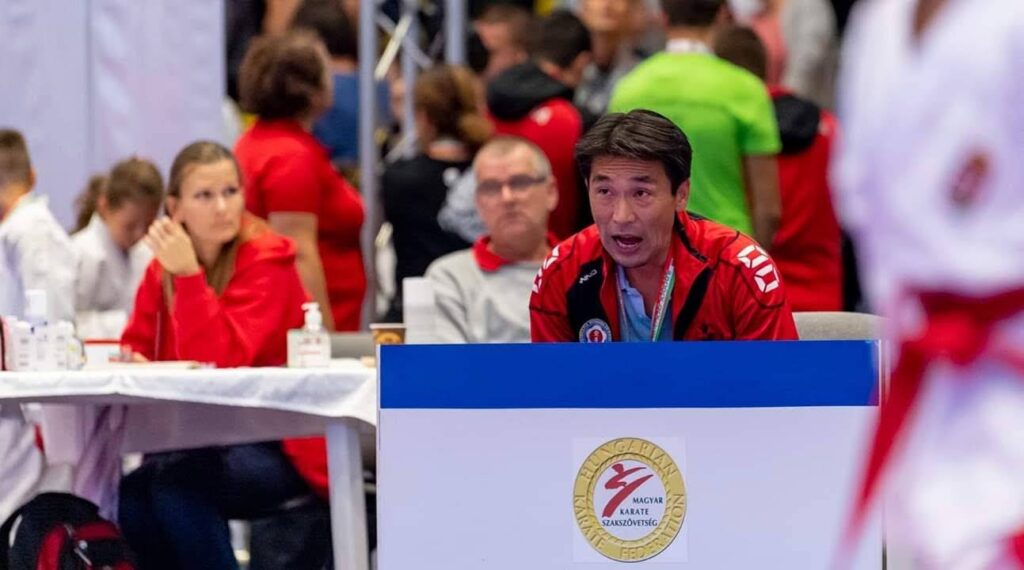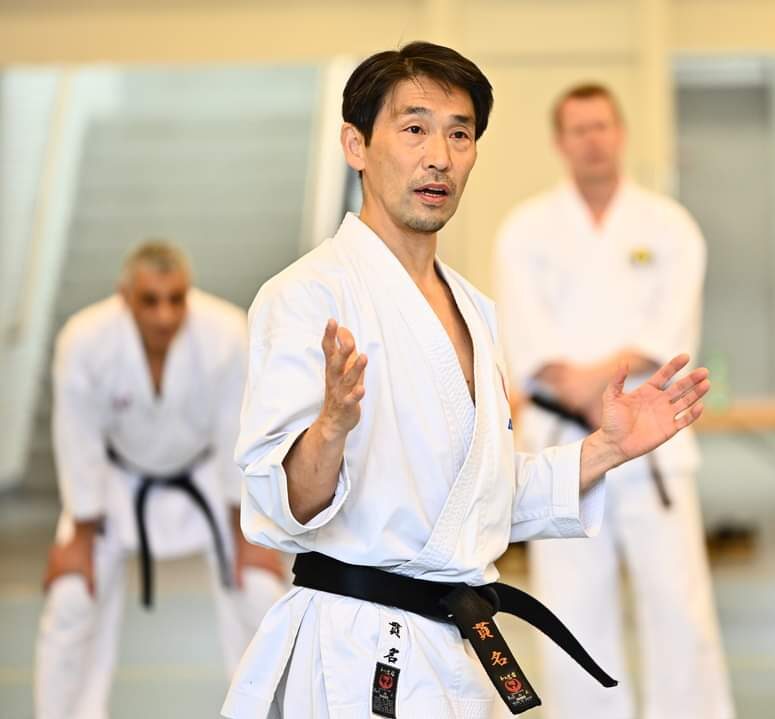
internationally active Budoka
VOLUME 01
karateka Nukina Nobuyuki Sensei
INTRODUCTION
Budo enthusiasts from Japan have spread overseas and are now found all over the world. Here we focus on internationally active Budoka and introduce their activities and ideas.
The first article features Nukina Nobuyuki Sensei, a 6th dan of the Wadokai, who is based in Austria and Romania and teaches karate throughout Europe. Legendary as the captain of the Kinki University Karate Club during his student days, Nukuna Sensei won the All-Japan Student Championship three times in a row, but left the country at a young age. He is now one of Europe’s leading karate masters.
'Know thyself'
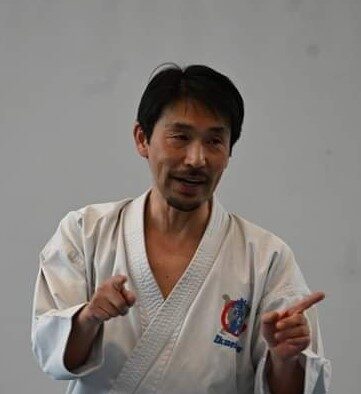
ー Please tell us about your background and activities up to the present.
Nukina Sensei:I was a member of the Kinki University Karate Club when I was a student. After graduating from university, I worked for a company for a while from 1996, but by chance I moved to Bucharest, the capital of Romania, in 2002. The following year, 2003, I founded the Ikueikan Karate Dojo with my wife Giorgiana (Wadokai Shodan) and since 2004, when our first daughter was born, I have been teaching alone.
In 2020, I moved to Vienna, Austria, and now also teach at Ikueikan Bucharest every two weeks. I have 35 apprentices in Vienna and 65 in Bucharest. The headquarters of Ikueikan is in Nagoya, but in Europe there are other Hungarian branches besides Vienna and Bucharest. In Europe, the Ikueikan Kids Cup and the Ikueikan Romania Cup are held annually. Apart from that, I personally lead regularly Wadokai technical seminars in the UK, Italy, Belgium, Sweden, Cyprus, Wales, Ukraine, Russia and Bulgaria.
ー How did you approach karate-do from childhood to your school days?
Nukina Sensei:I was interested in karate-do from a very young age. When I was in the second grade, in primary school, a dojo called Ikueikan opened near my house and I joined immediately. The instructor at Ikueikan was Matsuzaki Sensei, and I became his first disciple.
At the time, Matsuzaki Sensei was young, in his 20s, and I received traditional instruction from him, which was faithful to the basics. As long as I was in primary school, I was only allowed to practice the basic techniques, so I started kumite later on, when I was already in junior high school. The rigorous basic training I had as a child became a great asset for me later in life. The important thing is not to understand the invisible parts with your head, but to learn them with your body, making full use of all five senses. Such practice requires time as well as the patience to endure repeated practice. Once the sensations have been absorbed into the body, they are never forgotten.
The high school I went to did not have a karate club. Therefore, for three years I attended the Chukyo University Karate Club at Matsuzaki Sensei’s alma mater. There, I trained together with university students and worked on developing my fundamental skills.
After graduating from high school, I went on to study at the Kinki University, which is famous for its strong karate club. During my four years there, I was really immersed in karate. For example, at the training camp before tournaments, we practiced for eight hours in one day, four grueling training sessions. I struggled with relationships within the club, but above all, there was a huge difference in skill level between me and my seniors, and there were times when I couldn’t even see the techniques they were doing. That’s how fast they were. Because of these difficulties, I would often cry on the train when I went back to Nagoya for holidays.
However, I gritted my teeth and worked hard, so I became a regular member of the kumite team in my third year. Kinki University won the All-Japan Student Championships for the second year in a row. I became captain in my fourth year and also won the championship for the third year in a row. This was the first time in the history of the Japanese student federation, when the same university won three consecutive championships, and I am proud of this achievement in my karate career.
My coach during my student days was the late Akihiko Kijima. Before the All-Japan Student Championships we took part in the All-Kansai Student Championships, and Kinki University missed out on a fifth consecutive title because I made a draw my bout at the final. At the meeting after the tournament, Coach Kijima scolded me very harshly. However, this defeat boosted the cohesion of the whole team and me who had almost lost confidence. On the day of the All-Japan Student Championships, not only did I have the confidence that I could definitely win, but my body felt like it was floating in the air and was full of energy.
I have many painful memories of my time at Kinki University, but I think that I was able to spend four really intense years there. There is no doubt that it had a tremendous impact on my career as a karate-do instructor.
ー Please tell us about the time when you ventured abroad.
Nukina Sensei:I think my decision to go abroad was largely influenced by my wife, whom I married in 1998. Looking back, up until then I was a narrow-minded person who came from a sports background. However, I felt that I was destined to teach karate abroad. My wife was, of course, important in my decision to move to Europe, but at the end of the day, it was my own decision. I was unemployed at the time, but I also thought that I could make a living out of karate.
When I moved to Romania, karate had been spreading in Europe for about 30 years. The level of traditional karate practiced in Western Europe was beyond my imagination. However, karate in Romania was not at such a high level, and more importantly, the country itself had only been out of communism for about 10 years, so I had to face a lot of difficulties in my daily life. I also struggled with the mentality of the Romanian people, which is fundamentally different from that of the Japanese and more heterogeneous compared to Western Europe. Another obstacle was the difference of opinion with, for example, the Romanian Karate Federation, but these problems were gradually resolved as my Romanian improved.
Romania is not a country that is very familiar to Japanese people, but it is a country of Latin origin, and positively speaking, the people are optimistic and not obsessive about things. On the negative side, they lack patience, are individualistic and don’t think about others. However, the love that these people can give is amazing, and I am learning this every day.
ー What direction do you think the international karate world will take in the future?
Nukina Sensei:This is a phenomenon that we can already see, but I think that budo karate and sport karate – the two poles of karate-do around the world – will become more and more polarized. Budo karate is unique because it is difficult to understand without all the social graces. Sport KARATE, in contrast, may be easier for a bigger number of people to understand. Therefore, I believe that it will be important for the future of karate to have leaders who can bridge the gap between these two polarized forms of karate and then train the next generation.
I believe that other sports have similar characteristics, but if the bipolarization of karate-do continues, the aim of karate-do will be only to win or lose. This will lead to a decline in the quality of those who practice karate-do and the characteristics of learning the noble aspects of humanity that karate-do values will be undermined. As karate-do is a budo, it is necessary to develop the ability to discern the invisible essentials, both physical and spiritual, of karate-do. This is the deepest part of karate that can be understood only if you become the salt of the earth.
This can also be seen in the technical context as follows. Europeans have a strong logic and try to learn everything logically. Therefore, when they learn only the superficial aspects, they tend to think that they understand everything. However, some people have dull senses, so it happens that the essential parts, which are actually invisible, are not understood or important parts are not expressed. Since I came to Europe, I have been able to compare these differences in the process of acquiring skills between the East and the West as a first-hand experience. This has been a great benefit for me.
ー What is important for leaders to nurture the next generation?
Nukina Sensei:The first important thing is to teach with love. This will not only ensure that you always have a positive mindset, but also that you maintain balance as a person based on this. Secondly, it is also important to have a spirit of humility and to always learn from adversity.
If you can put these things into practice and convey something to someone with your ‘backs’ through your actions rather than just words, I think you will naturally attract students who are looking for similar positive energy. In other words, it is most important to have a heart that seeks and pursues something positive that is invisible to the eye.
ー Is there anything that Japanese people working abroad should consider?
Nukina Sensei:There are many teachers in Europe who have been pioneers of karate-do. The contribution of these people is enormous, but behind the scenes there must be unimaginable hardship. The current development of European karate owes to these pioneers.
However, more than 50 years have passed since karate began being spread. As mentioned earlier, there are differences in the process of acquiring techniques between Westerners and Japanese. If this is not approached properly, it will not only be a mere imposition, but may also erase the characteristics of the Europeans. I think it is natural that the Japanese take pride in being the mother country of karate-do. However, it is not easy for us to sow the seeds, nurture them and make them blossom in European soil. I believe that this requires foresight based on the love of the instructors.
ー What is the goal for you?
Nukina Sensei:Half a century has already passed since karate crossed the sea from Japan. In such a situation, I am always thinking about how I, as a Japanese, should deal with Europeans. I want to be a person who loves them, yet maintains humility and is recognized as a ‘true Japanese leader’. I also feel that I want to strive to train the next generation of internationally-minded leaders.
ー What is your message to young people who want to become internationally active through budo?
Nukina Sensei:First of all, know yourself. To do so, you should go abroad and test yourself. Then you will be able to see your strengths and weaknesses. At the same time, you will be able to compare the differences with others.
If you are Japanese, you will be proud and happy to be Japanese. Then your role will also become clearer. Before you can believe in yourself, you must know yourself.

